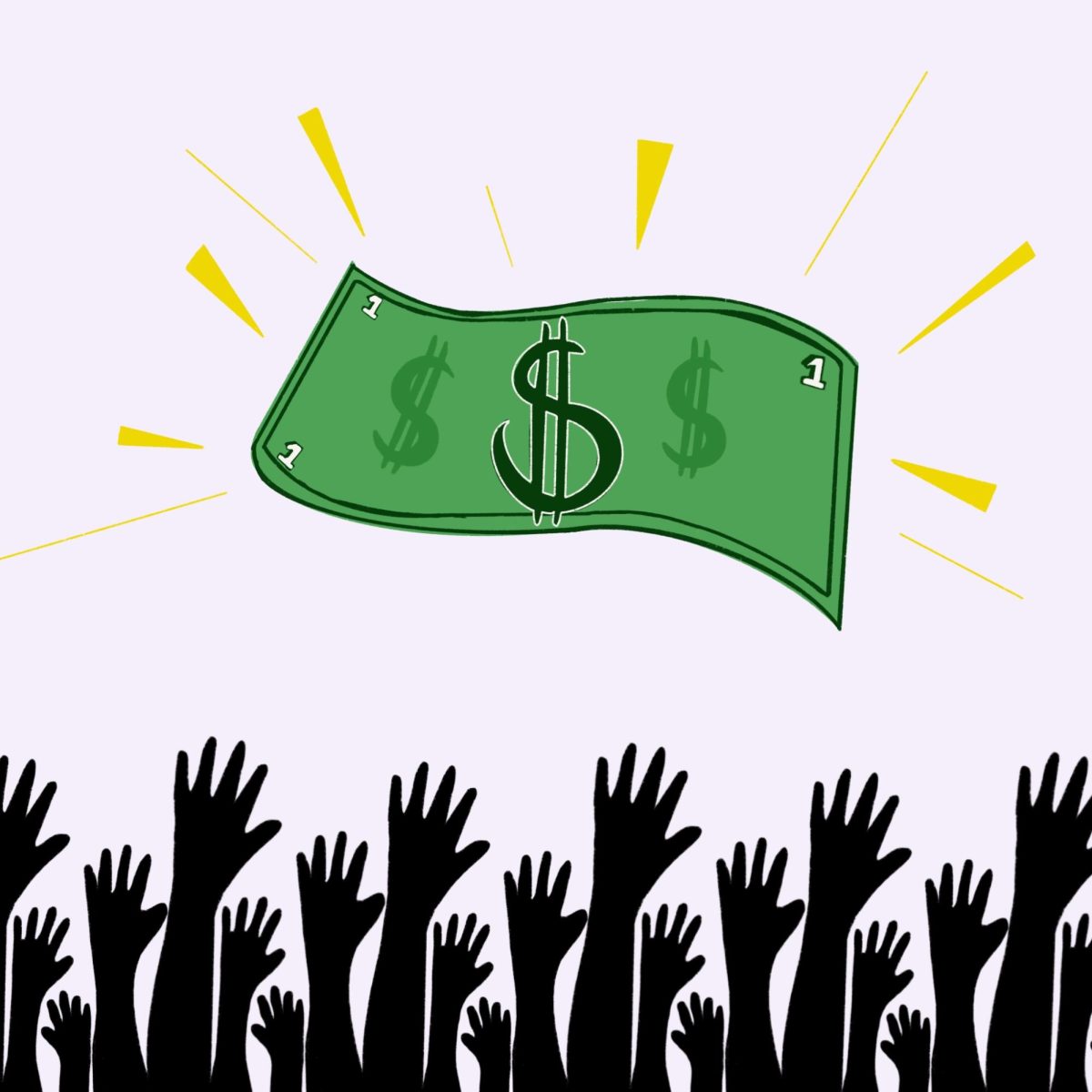Money doesn’t buy happiness. This statement is as profound as it is controversial but falls short in terms of practicality. With Americans’ spending power continuing to decrease, they face a new threat in the form of a paywall: one that prevents them from ever affording happiness.
Money may not be a substitute for happiness itself — they do say money can’t buy it — but all the more noble pursuits of happiness come with a hefty price.
With mental health becoming a worsening epidemic and the number of people getting treated in therapy increasing every year, it’s becoming obvious that therapy itself is only part of the solution.
The vast majority of these issues can be attributed directly to money, or lack thereof. Financial dissatisfaction isn’t something that can be conquered in therapy with simply a shift in mentality. Attempting to treat individuals for having valid reactions to unfortunate circumstances is a failure of the system, not the individual.
Self-improvement is Expensive
Personal growth is a privilege only accessible to those who can afford it. Not to mention that outside of work, there isn’t much time left to spend worrying about one’s feelings. For individuals whose incomes are solely focused on purchasing necessities, any form of leisure quickly becomes the first to go.
Americans are working more than ever before, yet are paid less than ever. Working longer hours to reach the same compensation — which often still isn’t enough to support even a single adult — is exhausting and stressful. Simply put, we’re running out of time. Exercising more often, reading self-help books and finding a hobby are all valid endeavors to increase one’s life satisfaction, reduce stress and improve health. But the average American worker can’t afford a gym membership even if they have the spare time to go, and surely won’t waste either time nor money on something as unproductive as a hobby.
Forget trying to pursue a passion either. Chances are, it’s also out of the budget.
As college becomes more expensive and out of reach, the question doesn’t become, “Is college worth it?” but “Which college majors are worth it?”
Many students are finding themselves forced into majors that don’t align with their interests due to their need for a return on investment. And students whose passions don’t happen to align with more profitable majors like business or engineering are out of luck.
With limited access to passion, leisure and relationships, it’s no wonder Americans are miserable and turning to therapy. But therapy is not the only solution.
The Cost of Relationships
According to researchers, the biggest indicator of a happy life can be attributed to the social relationships cultivated.
This perspective is presented in a way that seeks to disprove the claim that it is instead money that breeds happiness. However, it fails to consider that the two are closely related.
The category of activities once described as “affordable” is steadily decreasing. From going to the movies to grabbing coffee, Americans are forced to find themselves budgeting for having friends. Even hosting gatherings at home is getting more expensive as grocery prices soar.
Loneliness is an epidemic, but at least it’s cost-effective. It is not the activities themselves that breed happiness, but the relationships they cultivate. It’s not about crying in a nicer house, but having someone to cry with in that house.
Loneliness is a large indicator of overall life satisfaction and is prevalent among so many Americans. It should not come as a surprise that many Americans struggle with their mental health.
This issue is systematic, and although it can be addressed in therapy, therapists are on an unequal playing field. It’s as if the whole world is against their patients, with many rational and hard-to-treat worries like climate anxiety becoming prevalent topics.
Therapists Can’t Do It All
Americans don’t need therapy. They need money.
While therapy can alleviate some of the stresses caused by financial difficulty, it can never truly reach past the symptoms. And for some, the cost of therapy is a stressor itself.
Despite therapists’ best efforts, they can’t keep someone else’s lights on or put food on their table. They can’t get a patient off work early to spend time with their family. They certainly can’t erase debt. When an individual is sick, they don’t seek to cope with it. They seek a cure.
Financial struggles are no different. It just so happens that money isn’t a doctor’s visit away.
As it currently stands, therapy is nothing but a band-aid for a much larger issue. This is, of course, no fault of therapists, nor is it an attempt to say that therapy isn’t worth it. Therapy has proven to benefit people regardless of personal strife, but it is time to think broader when it comes to tackling mental health issues caused by systematic failures.
Understanding the intense dependence happiness has on money is the first step to identifying the issue. The burden of helping people deal with systemic issues cannot lie only on the backs of therapists. They ultimately become mere substitutes for genuine necessities such as communities, relationships and passions.
It’s time to admit that there are real issues worth fixing, instead of merely coping with them.




